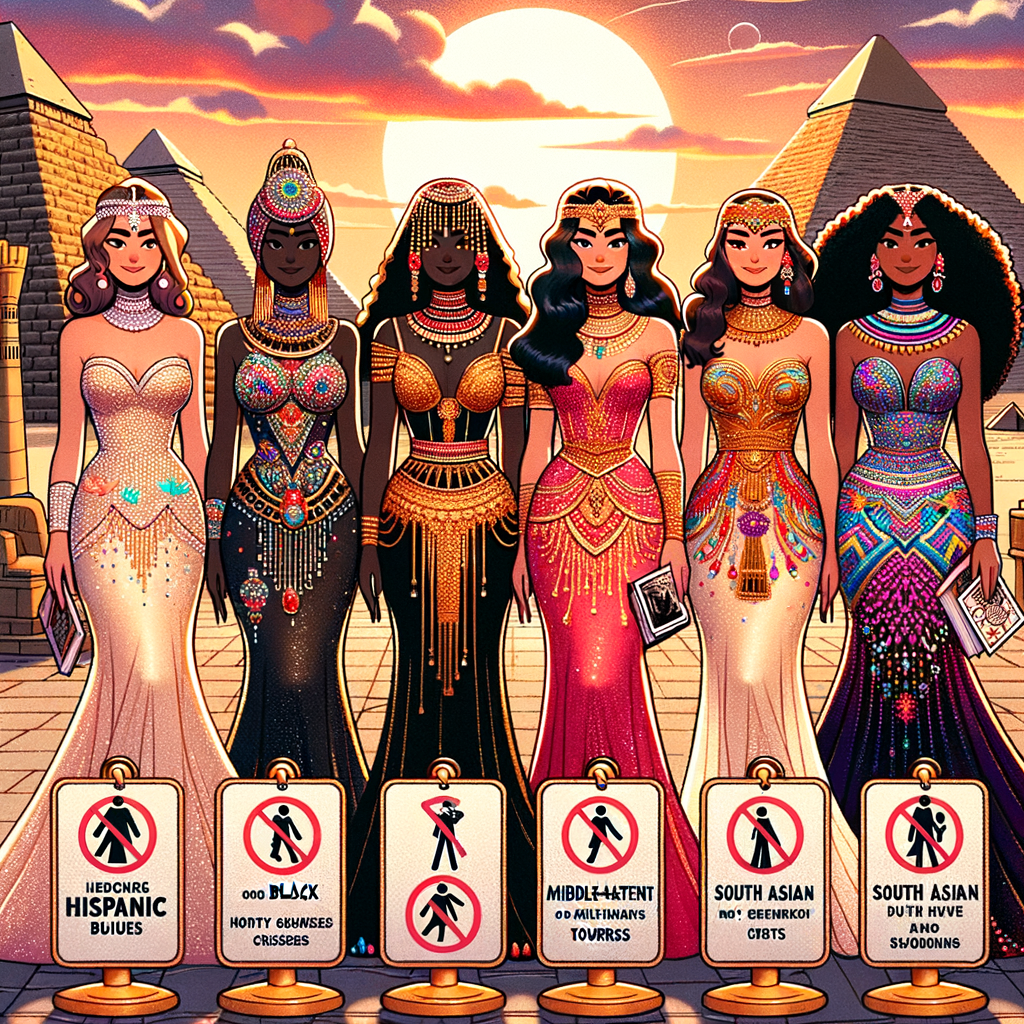
Blog
- Egypt Dress Code: Must-Have Tips for Female Tourists
- Understanding Egyptian Culture and Expectations
- Dress Code Guidelines for Female Tourists
- 1. Choose Loose Fitting Clothes
- 2. The Importance of Layering
- 3. Select Appropriate Footwear
- 4. Consider Cultural Sites
- Incorporating Personal Style and Function
- Dress Code: What Not to Wear to a Military Ball
- Final Thoughts and Resources
Egypt Dress Code: Must-Have Tips for Female Tourists
Dress code considerations are often crucial for travelers, particularly when visiting regions with vastly different cultural and religious norms. Egypt, a country rich in history and tradition, offers an incredible array of sights from the majestic pyramids in Giza to the luxurious beaches of the Red Sea. However, navigating what to wear — especially for female tourists — can be a bit more complex due to cultural sensitivities and local customs.
Understanding Egyptian Culture and Expectations
Before delving into specifics, it’s important to grasp why dress code sensitivities are heightened in countries like Egypt. Predominantly Islamic, the social norms lean towards modesty for both men and women. Understanding this cultural backdrop can greatly enhance the travel experience, showing respect for local customs and contributing to a comfortable interaction between tourists and residents.
Dress Code Guidelines for Female Tourists
When exploring the bustling streets of Cairo or basking in the coastal sun at Sharm el-Sheikh, keeping modesty in mind is key. Here are several practical tips and outfit suggestions that adhere to the local customs while still embracing your personal style.
1. Choose Loose Fitting Clothes
Opt for garments that are both comfortable and modest. Loose fitting trousers, maxi skirts, and long-sleeved tunics are excellent choices. These not only respect the cultural norms but are also practical in the Egyptian climate. You can find a selection of suitable and stylish outfits at Coveti’s modest fashion category.
2. The Importance of Layering
Layering can be your best friend in Egypt. A lightweight scarf or shawl is indispensable and serves multiple purposes — from a modest cover-up when visiting religious sites to a shield from the midday sun. Coveti’s collection of designer scarves offers elegant options that can elevate any outfit while providing functionality.
3. Select Appropriate Footwear
Given the terrain in Egypt, which can range from sandy deserts to cobblestone streets, comfortable footwear is essential. Closed-toe shoes are generally recommended to keep your feet protected. Consider stylish yet practical options such as loafers or closed-toe sandals that match well with a variety of outfits. Browse through Coveti’s footwear selection for ideas.
4. Consider Cultural Sites
When planning visits to religious or historically significant sites like mosques or the Valley of the Kings, additional care should be taken with attire. It is customary to cover your hair, arms, and legs. Keep a versatile scarf in your daypack and opt for outfits that cover the shoulders and knees.
Incorporating Personal Style and Function
Adhering to a dress code doesn’t mean sacrificing your personal style. Brands on Coveti, such as Abaya Company and Global Fashion House, offer chic options that meet both the aesthetic and practical needs of traveling in Egypt.
Dress Code: What Not to Wear to a Military Ball
Coincidentally, the principles of modesty can also apply to completely different contexts — such as deciding what not to wear to a military ball. This official event typically requires formal attire that is conservative, aligning in some ways with the modesty observed in Egypt’s public dress codes. Avoid overly revealing outfits and consider elegant gowns that offer both sophistication and respect for the formality of the occasion.
Final Thoughts and Resources
Planning your Egyptian wardrobe might seem daunting, but with the right tips and thoughtful choices, you can enjoy a comfortable, respectful, and stylish visit. For further inspiration, check out fashion insights from industry expert Gemma Deeks. Additionally, mainstream fashion magazines such as Vogue and Harper’s Bazaar frequently offer travel fashion tips that could be useful for your preparation.
In conclusion, when visiting Egypt, embracing local dress code norms not only respects cultural values but also enriches your travel experience, allowing you to move more freely and engage more closely with the community. Whether walking through Cairo’s colorful markets or navigating the social expectations of a military ball, understanding and integrating into the local culture through attire is a valuable practice for any global traveler.
















